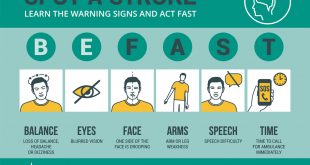In the hustle and bustle of our daily lives, it’s easy to overlook the most vital organ that keeps us going – our heart. Your heart is, quite literally, the engine that powers your body, ensuring every other system functions as it should. Yet, many of us take our heart’s well-being for granted, assuming that as long as we feel okay, our heart must be fine too.
But here’s the truth: heart-related issues can develop silently, often without noticeable symptoms, until they reach a critical stage. That’s why it’s crucial to be proactive about your heart health. One of the most effective ways to do this is by scheduling regular checkups with a cardiologist.
Regular heart health checkups and consulting a cardiologist should be a yearly priority, even if you believe you’re in good health.
Remember, your heart deserves the best care and attention. Heart conditions may have already progressed significantly by the time symptoms become apparent. Regular checkups with a cardiologist can be your shield against the unexpected and your path to a healthier, longer, and more fulfilling life. Don’t wait for a wake-up call from your heart; take control of your health starting today.
Let us take a look at the various risk factors affecting your heart, the benefits of early detection, and the range of advanced diagnostic tools and treatments available today.
Aortic Valve Stenosis:
. Aortic valve stenosis is a heart condition characterized by the narrowing of the aortic valve, which controls blood flow from the heart’s left ventricle to the rest of the body.
. Common causes include aging, congenital heart defects, and calcium buildup on the valve.
. Symptoms may include chest pain, fatigue, dizziness, and shortness of breath.
Treatment Options for Aortic Valve Stenosis:
1. Medications: Some medications can help manage symptoms and reduce the workload on the heart.
2. Aortic Valve Replacement: Surgical or minimally invasive procedures to replace the narrowed valve with a mechanical or biological valve.
3. Transcatheter Aortic Valve Replacement (TAVR): A less invasive procedure where a new valve is inserted through a catheter.
Coronary Artery Disease (CAD):
. Coronary artery disease is when the blood vessels that supply the heart muscle with oxygen and nutrients become narrowed or blocked due to cholesterol and plaque buildup.
. Risk factors include high blood pressure, high cholesterol, smoking, and diabetes.
. Symptoms may include chest pain (angina), shortness of breath, and in severe cases, heart attacks.
Treatment Options for Coronary Artery Disease:
1. Lifestyle Changes: Dietary modifications, regular exercise, and smoking cessation.
2. Medications: Drugs to lower cholesterol, control blood pressure, and prevent blood clots.
3. Angioplasty and Stent Placement: A procedure to open blocked arteries and place a stent to keep them open.
4. Coronary Artery Bypass Grafting (CABG): Surgery to bypass blocked arteries using a graft.
Heart Failure/Cardiac Arrest:
. Heart failure is a chronic condition where the heart can’t pump blood effectively, leading to fluid buildup and reduced oxygen delivery to the body.
. Cardiac arrest is a sudden loss of heart function, leading to the stopping of blood circulation.
. Symptoms of heart failure may include fatigue, swelling, and shortness of breath. Cardiac arrest presents as a sudden loss of consciousness.
Treatment Options for Heart Failure/Cardiac Arrest:
1. Medications: Drugs to reduce fluid retention, strengthen the heart’s pumping action, and control blood pressure.
2. Implantable Devices: Devices like pacemakers or implantable cardioverter-defibrillators (ICDs) may be recommended.
3. Lifestyle Modifications: Dietary changes, fluid restriction, and salt intake reduction.
4. Cardiopulmonary Resuscitation (CPR): For cardiac arrest, immediate CPR is crucial to maintain blood circulation until medical help arrives.
5. Defibrillation: An automated external defibrillator (AED) can restore normal heart rhythm during cardiac arrest.
Is This Test for You?
Manatee Diagnostic Center values the appropriate use of medical testing. If you are a male age 35-70 or a female age 40-70 with any of the following risk factors, the CT Heart Score may provide valuable information to your physician about your heart health. Consult with your healthcare provider if you feel a CT Heart Score may be the right option for you.
Heart disease risk factors:
. Diabetes
. Family history of heart disease
. High blood pressure
. High cholesterol
. Overweight
. Smoking
It’s important to stress that individuals experiencing symptoms or concerned about these conditions should seek immediate medical evaluation and consultation with a healthcare provider. This information is for educational purposes only and should not replace professional medical advice and diagnosis.
In an emergency call 911 or get to the nearest emergency room.
2023 Suncoast Heart Walk
Saturday, November 18, 2023
Event Opens 8:00am
Walk Begins 9:00am
Rossi Park Bradenton Riverwalk
452 3rd Avenue West,
Bradenton, FL 34205
REGISTRATION
www.suncoastheartwalk.com
Contact Your Suncoast Heart Walk Team
(941) 867-8852
Manatee Diagnostic Center
CT Heart Score can be done at Manatee Diagnostic Center, call 941-747-3034 to make an appointment.
Physicians are on the medical staff of Manatee Memorial Hospital, but, with limited exceptions, are independent practitioners who are not employees or agents of Manatee Memorial Hospital. The hospital shall not be liable for actions or treatments provided by physicians. For language assistance, disability accommodations or the nondiscrimination notice, visit our website.
 Southwest Florida's Health and Wellness Magazine Health and Wellness Articles
Southwest Florida's Health and Wellness Magazine Health and Wellness Articles

